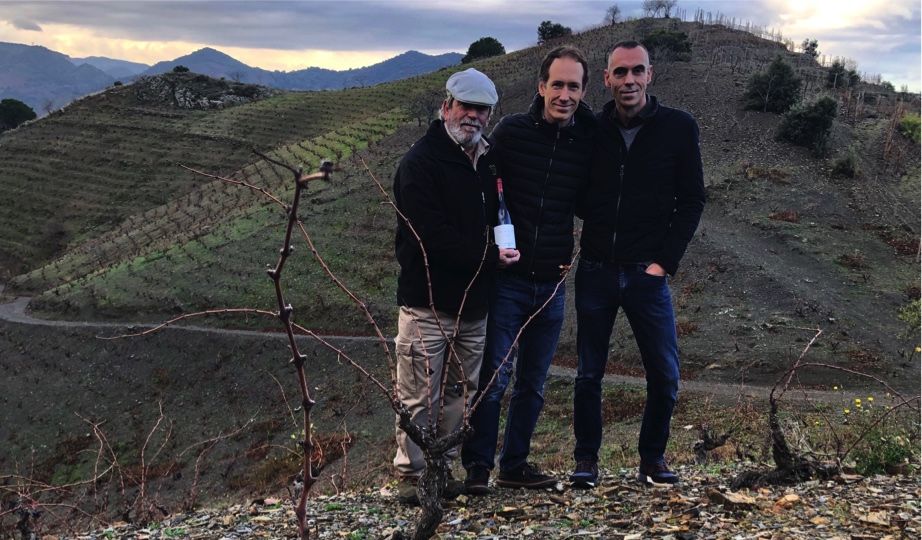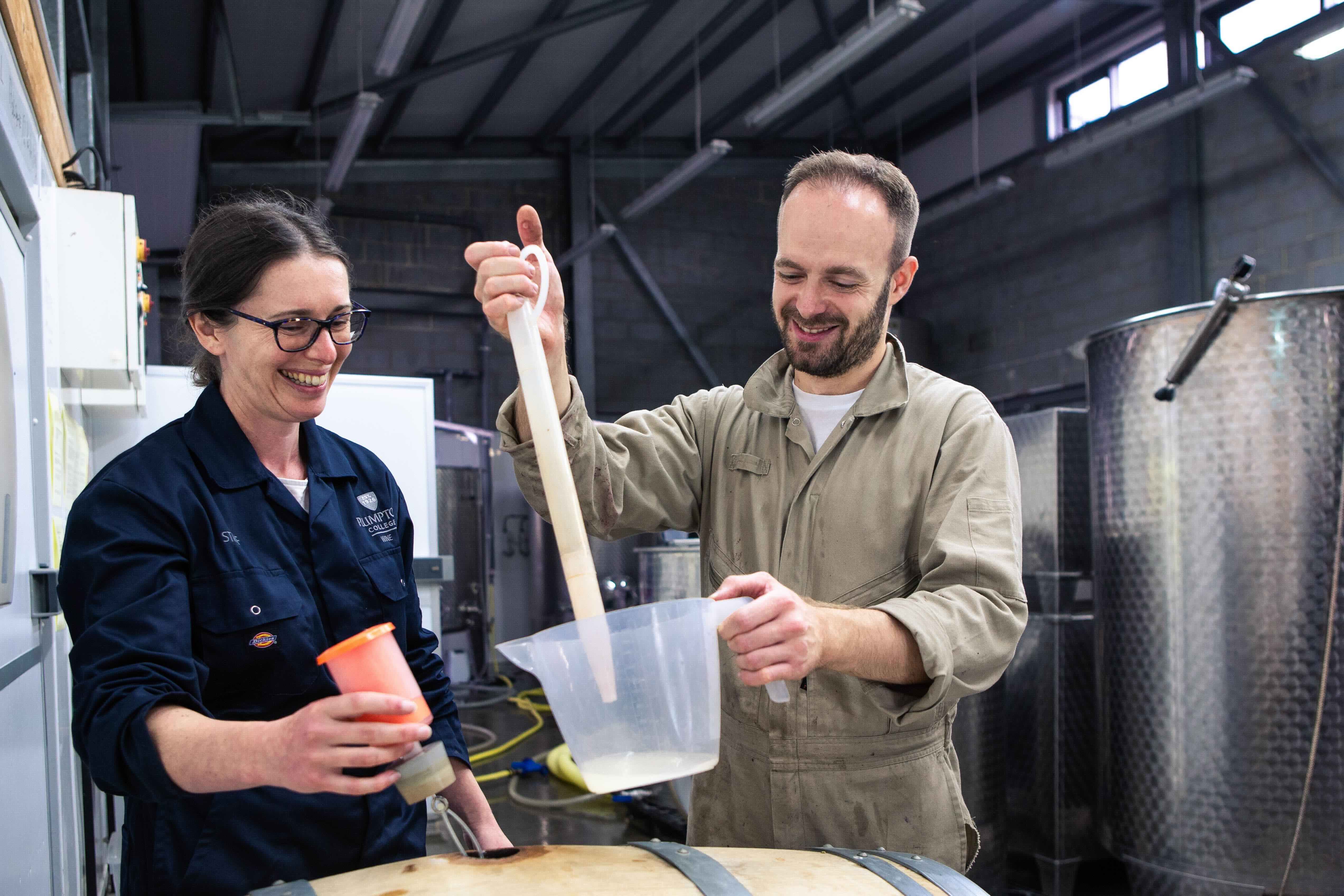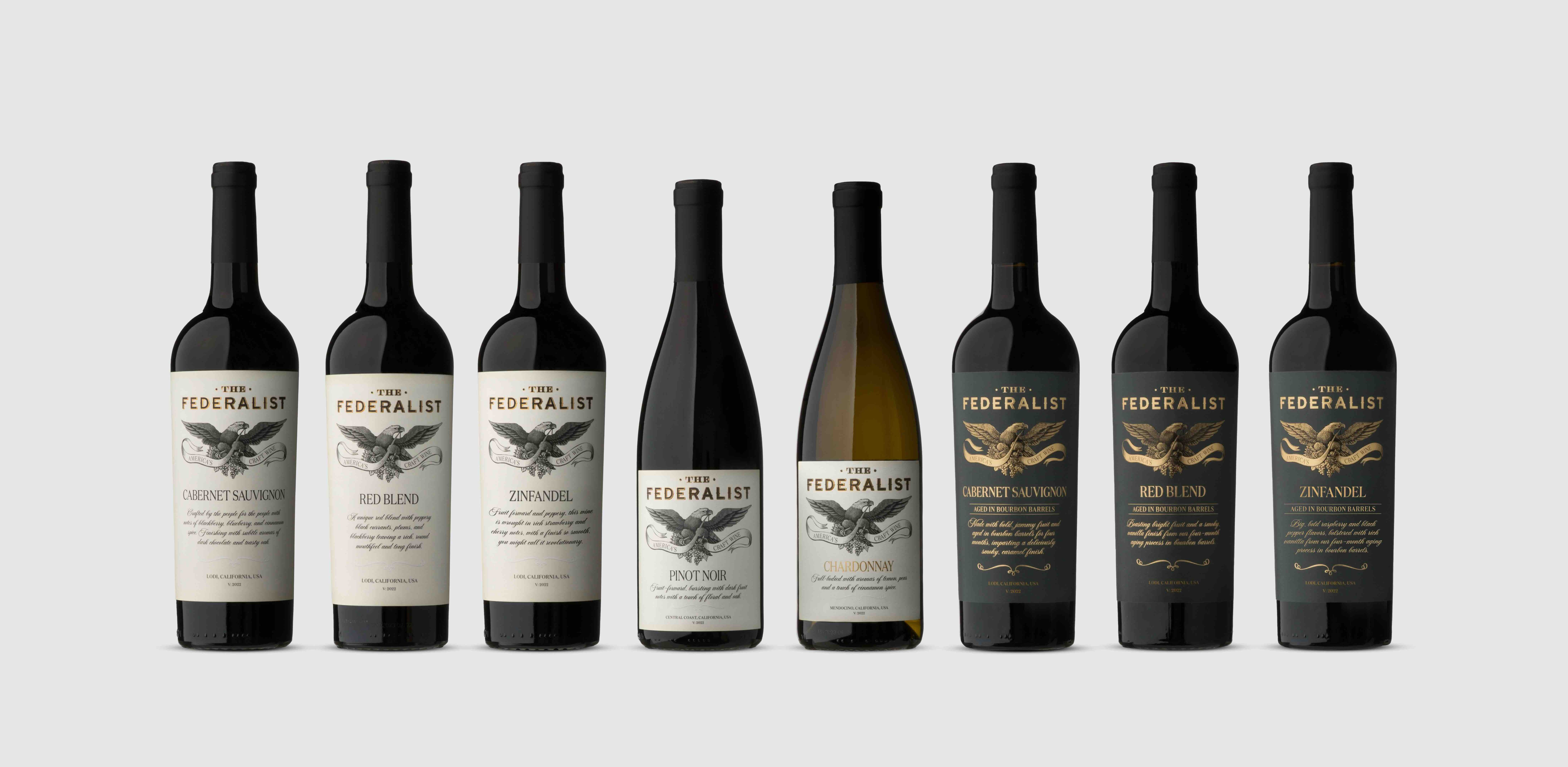As climate change raises temperatures in Catalonia, Torres believes that the best wines will come from vines at higher altitude
When travelling the world’s vineyards there are two subjects that you can bet your bottom dollar you will hear being discussed: climate change and Brexit. With the one that is unequivocally happening, the subject is accompanied by a variety of coping strategies: changes in grape variety, viticulture and choice of terroir to name just three.
In hot European countries, winemakers have already started to buy more elevated vineyards and higher ground with vine-planting potential; looking at more North and North Easterly aspects; returning to ancestral varieties that can make wine at lower levels of alcohol; picking grapes earlier, and so on. For those that can afford to, though, there is an inexorable move to higher ground.
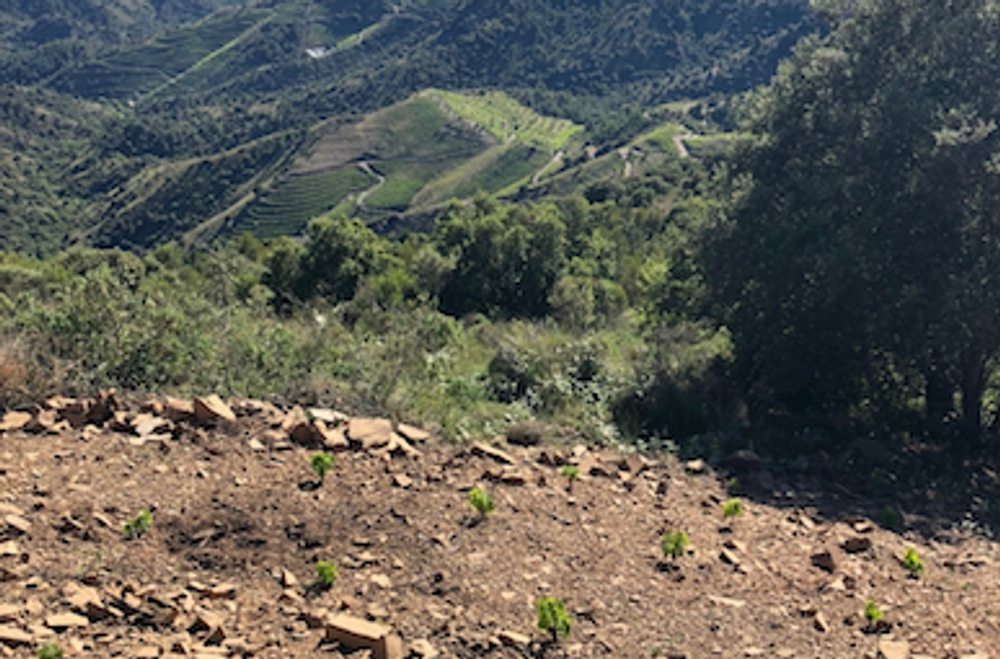
Els Tossals is the highest vineyard in Priorat with slate soils
In the past few months The Buyer has heard from Ramón Bilbao‘s head winemaker Rodolfo Bastida who has started planting grapes at much higher altitude in Rioja and Rueda. His extensive research shows that a rise of just 10-20 metres can have a discernible effect on the diurnal temperature.
Like many other winemakers, Pio Boffa from Pio Cesare is also worried about climate change, so much so that he has just bought a 20 hectare vineyard of Nebbiolo away from Barolo that is 600m above sea level; and then there is Miguel Torres Maczassek’s latest project of moving some of Torres’ vineyards to higher ground in Catalonia.
When Torres presented his latest portfolio of vintages earlier in the year he revealed that he has bought a 1.8 hectare site called Mas de la Rosa near Porrera 500 metres high in the Catalonia hills, a plot he discovered whilst looking for more vines for the company’s old vine project, Perpetual. While he was investing in this project he also identified and acquired another vineyard even higher up called Els Tossals.
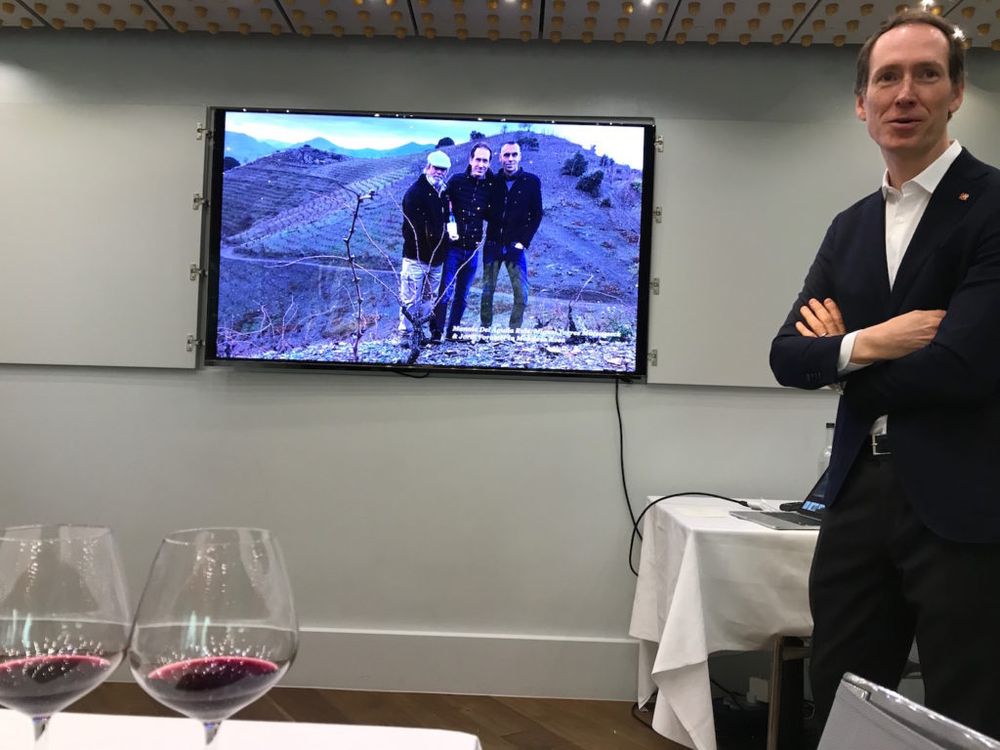
Miguel Torres Maczassek, London, April 2019
“Els Tossals is the highest point in Priorat with slate soils – 750m up. It used to have vines but people abandoned them and moved to Porrera, because it gets very cold there and it was very hard to farm there with a mule,” Torres says.
The site has only had half a hectare planted of Carignan, Grenache and Picapoul to date but, as temperatures rise, so sites like Els Tossals which can be 5 degrees lower, will become increasingly viable to farm, says Torres.
“With climate change we think that some of the best wines in the Priorat will come from vines at higher altitude.”
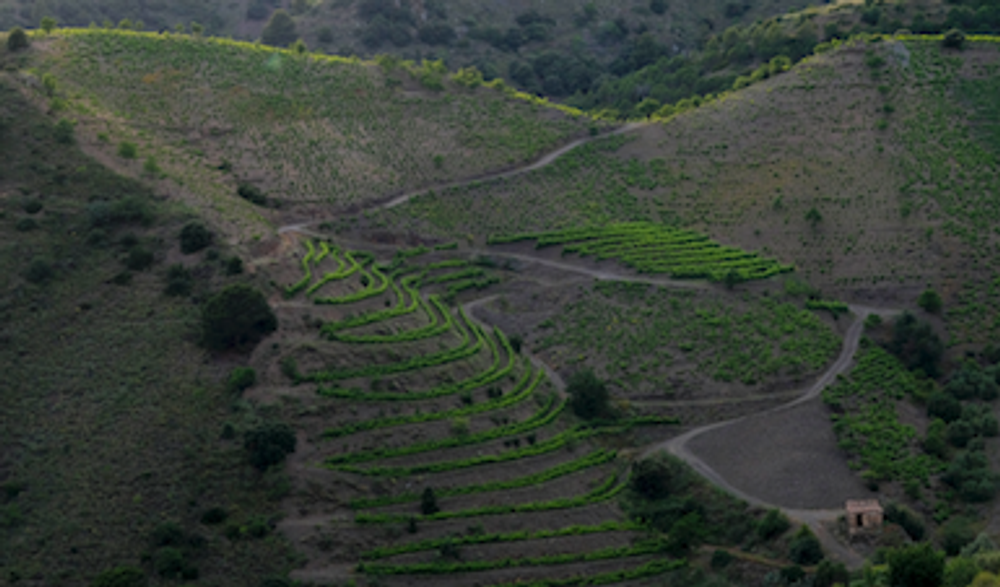
Mas de la Rosa: wines are much fresher, because it takes longer for the fruit to get ripe here
Torres says that there were problems in acquiring the land, both in tracing the original owners and also having to work through a third party to prevent an inevitable escalation in price once the owners knew who they were selling to. He also candidly revealed how this worked within the Torres family, one of the world’s greatest wine dynasties.
“I didn’t tell my family – I do something and then ask questions later, it’s the only way to get something done!”
It will be several years before the vineyard at Els Tossals starts bearing fruit but Mas de la Rosa is already there with Torres just launching the first vintage under the Torres brand name.
“These are very special soils, carbiniferous slate – mainly 20cm deep which the vines have to find cracks through; the whole site is like an amphitheatre. The result is that the wines are much fresher, because it takes longer for the fruit to get ripe, and there is better acidity, each vine produces just 300-400gms of grapes.”
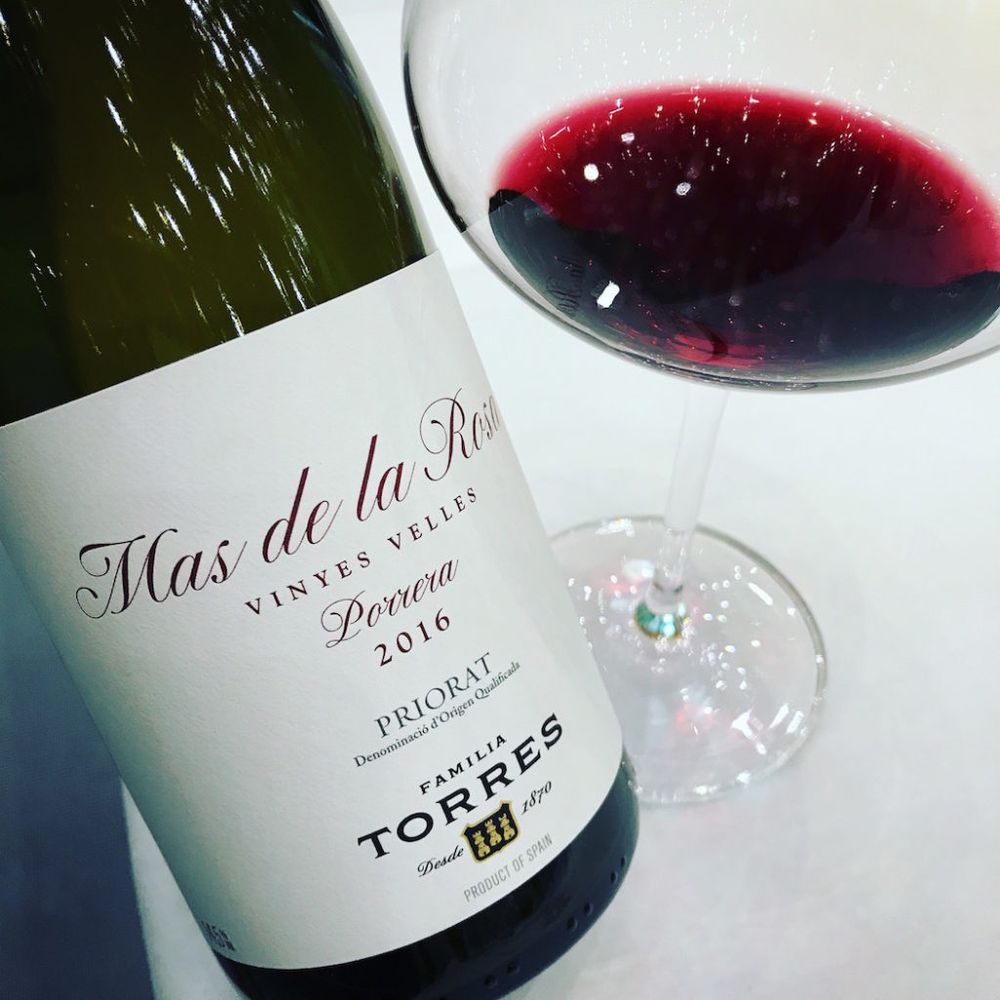
Tasting Mas De La Rosa 2016 (a 70/30 blend of Cariñena/ Garnacha) you can see what Torres is after, the nose is complex and fresh, while the palate is so immediately bright and light on its feet with a fine stony texture, fine silky tannins and a cranberry crunch. The downside is that its scale and yield makes for a highly exclusive availability and price point, just 60 bottles are finding their way to the UK through Fells at an approximate £200 RRP a bottle.
Torres’ new goals regarding climate change
Torres believes that climate change provides one of mankind’s greatest challenges, but the wine industry can take a lead, especially in the field of agriculture. Torres believes that climate change will be more catastrophic to wine than phylloxera ever was – which is why the company has invested €12m for its own part to try and combat climate change.
Torres has set itself a group target that by 2030 it will have reduced CO2 omissions by 50%; it is already well on its way to reducing output of CO2 by 30%, a target it set itself to achieve by 2020, the company’s 150thanniversary. This has been achieved by moving to more solar and biomass energy sources, but viticultural strategies – higher ground and ancestral varieties – also play a significant part.
“We are still positive we can adapt but there is no doubt that it is a great challenge, much more of a challenge than phylloxera. If average temperatures increase by five degrees by the end of the century the scenario is going to completely change,” Torres explains.
“It is impossible to say we are making wines of the past unless we adapt, lack of water will be the big problem, but I believe wine take a lead, especially in the agricultural world, it is doing more than others.”
